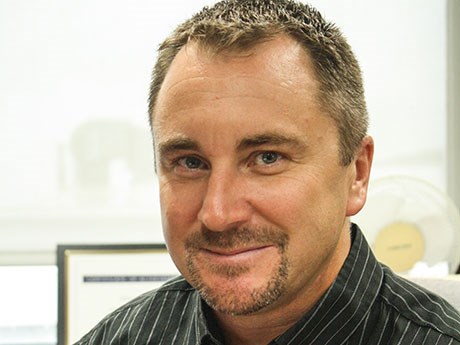Wellness and productivity boosted through Mental Health First Aid
Providing first aid treatment to a miner who has suffered a physical injury is expected, and no miner would go underground thinking otherwise. But that expectation is not so black and white when it comes to mental health first aid, despite mental health illness being a hazard that exists in every workplace, often going undiagnosed or ignored.
A mental health first aid (MHFA) training course developed by the Mental Health Commission of Canada is now being offered to the mining industry in Northern Ontario through Workplace Safety North (WSN).
In the early 2000s before becoming a miner, WSN mining director Mike Parent was a paramedic, and remembers that he and his co-workers often had to deal with horrifying calls that for some resulted in post-traumatic stress. At that time it was just a fact of life, and not much was done about it, but today there is increased awareness of people’s mental health.
While working underground, Parent became a member of the health and safety team at the mine where he worked, which influenced his passion for promoting mental health wellness.
“A miner shows up for work, sees his supervisor for 30 seconds, gets into a cage and goes underground for the day.
They may be working alone or have a partner depending on what they’re doing. If someone gets cut underground and bleeds, it’s very obvious… we apply first aid. But if somebody starts to behave differently, are co-workers or supervisors able to provide the help they need?” asked Parent.
This is where MHFA training can make a difference. A trained supervisor or co-worker can provide a person with a mental health problem or already in a mental health crisis with support until the right kind of professional treatment is available or the crisis has been resolved.
The training covers signs and symptoms of mental health problems or crises, information about interventions and treatments and how to go about accessing professional help. It also provides information on substance-related disorders, mood-related disorders such as anxiety and depression as well as psychotic disorders. Participants learn crisis first aid skills for substance overdose, suicidal behaviour, psychotic episodes, acute stress reaction and panic attacks.
“Mental illness creates a significant cost to employers,” said Parent. “The Conference Board of Canada reports $50 billion per year in lost productivity due to depression and anxiety. In response to a recent study by the Mental Health Commission of Canada, 80 per cent of participants identified mental health conditions in their top three causes of short-term disability and 72 per cent as a cause for long-term disability. Companies need to start addressing this so they can have their employees back at work where they can be productive,” said Parent.
MHFA trainer Lisa Lounsbury says the training courses began in North Bay and Sudbury in June 2016. Within four months, 145 people had taken the two-day course. The classes are restricted to 18 students to allow for personal interaction. Following their training, participants told Lounsbury it was an eye opener, and some said they did not realize they themselves have experienced mental health issues at work. One participant said it helped him get past the stigma of mental illness and he expected the training would help him, not only at work, but in his personal life as well.
Another participant said it helped her be more in tune with the people she works with and gave her skills to start those often uncomfortable conversations.
“I feel that almost all of us, at some point in our lives have some form of mental health crisis that we need help with, but many of us still don’t want to talk about it. I see a trend where that’s going to change,” said Parent. “Today 21.3 per cent of working Canadians personally experience mental health problems and issues, according to the Canadian Centre for Occupational Health and Safety, and I think as more people feel it’s safe to speak out and seek help, that number will rise, so companies really need to train their employees in mental health first aid,” he added.
WSN makes the course available upon request. Some mining companies have sent staff to the training sessions while others have acquired the materials and are doing the training on their own. Parent says WSN’s goal is to create awareness that the course exists and why it’s so important for mining companies to sign up. MHFA is currently offered in North Bay and Sudbury with the hope of extending it to other communities in the future.


